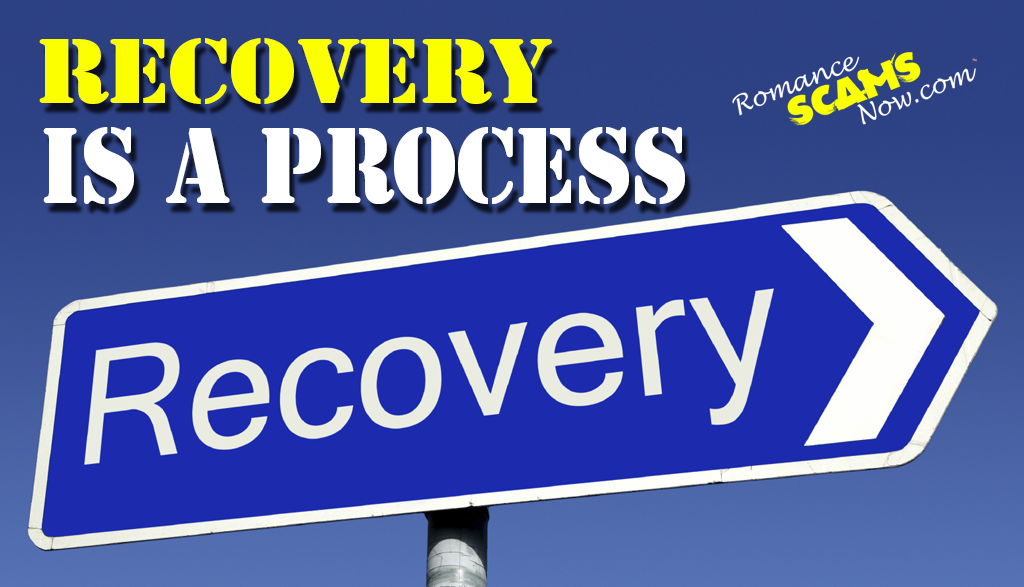Being A Scam Victim & Getting Support
Being A Victim Of A Romance Scam Is A Terrible Experience
Things are fine while the relationship is going on. Of course, there are things that disturbed you but you are at least you were fully invested and and being fully manipulated into the distractions that scammer provides. But once it is over you are in shock and traumatized.
You Are Not Going To Be A Happy Camper But You Can Get Through This!
We publish several articles to help you understand what happened to you and how to recover. You need to read and understand so that you can place the blame where it belongs and give yourself a chance to recover. You will find them in our RSN™ Guides.
Additionally, you are going to need HELP to recover. This comes in one of two forms: either a therapist, psychologist, or counselor; or you join a scam victims support group. If you do not seek help, the odds are high that you will be traumatized for life and take years to recover some of who you were before. Sadly, most victims DO NOT seek help. Less than 30% recovery from the trauma of their scam because they don’t try or let their anger get the better of them, and even those that do take a year or more to get over it.
The good news is that everyone who trimakesake it through to the other end!
Here is a list of our SCARS™ Approved Support Groups Online that fully comply with U.S. Federal & NOVA Standards for Victims’ Assistance:
Facebook Confidential Safe Support Groups
-
Main Scam Victims Support Groups
-
In Spanish & Portuguese Support Groups
-
Specialized Scam Victims Support Groups
MeWe.com Confidential Safe Support Group
Support Groups Here On RomanceScamsNow.com
After 27 years observing scams and scam victims the one thing we know is you will need help. We sincerely hope to take advantage of it. Psychological professionals cost money, but our support organization is free – use it!
We are here to help you!
Tell us about your experiences with Romance Scammers in our Scams Discussion Forum on Facebook »
FAQ: How Do You Properly Report Scammers?
It is essential that law enforcement knows about scams & scammers, even though there is nothing (in most cases) that they can do.
Always report scams involving money lost or where you received money to:
- Local Police – ask them to take an “informational” police report – say you need it for your insurance
- Your National Police or FBI (www.IC3.gov)
- The Scars Worldwide Reporting Network HERE or on www.Anyscam.com
This helps your government understand the problem, and allows law enforcement to add scammers on watch lists worldwide.
Visit our Main SCARS™ News & Information Facebook page for much more information about scams and online crime: www.facebook.com/SCARS.Victims.Support.And.Recovery
To learn more about SCARS visit www.AgainstScams.org
Please be sure to report all scammers HERE or on www.Anyscam.com
All original content is Copyright © 1991 – 2018 SCARS All Rights Reserved Worldwide & Webwide – RSN/Romance Scams Now & SCARS/Society of Citizens Against Romance Scams are all trademarks of Society of Citizens Against Romance Scams Inc.
#ReportingScammers #WhereToReportScams #Anyscam #SCARS #RSN #CatchScammers #ScammerWatchLists #ArrestScammers #REPORTSCAMMERS #ANYSCAM #AVOIDSCAMS #ROMANCESCAMS #ACTAGAINSTSCAMS #NIGERIANSCAMMERS #ROMANCESCAMSNOW #SCARS #GHANASCAMMERS #FAKEPROFILES #FACEBOOKSCAMMERS #BOYCOTTAFRICANCOFFEE







Leave A Comment